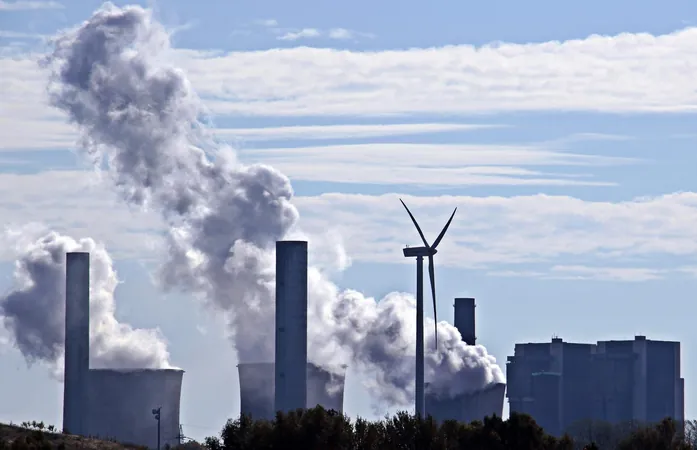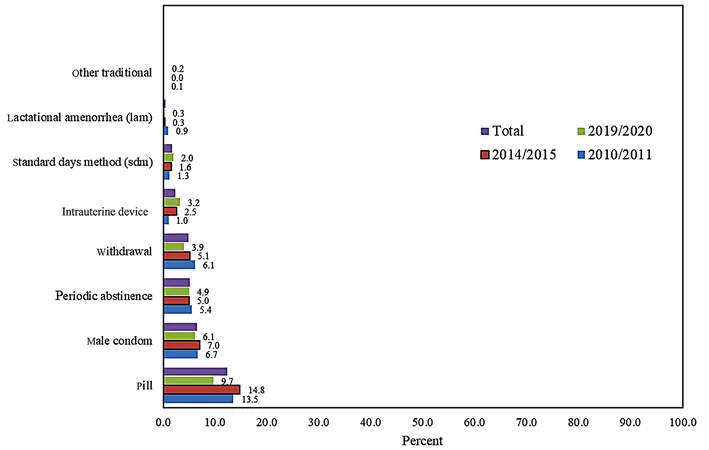
Is GDP Obsolete? Researchers Propose a Revolutionary 'Resilience Index' to Secure Our Planet's Future
2024-11-15
Author: Arjun
Introduction
In a groundbreaking call to redefine success, researchers are advocating for a 'resilience index' to serve as a barometer for policymaking, replacing the traditional emphasis on Gross Domestic Product (GDP). They argue that GDP fails to take into account crucial aspects of sustainable development and our capacity to thrive within the Earth’s ‘safe operating space.’
Philosophy Behind the Resilience Index
In a recent paper titled "Framing Resilience to Manage Complex Environmental Systems," published on November 15 in the journal One Earth, researchers from the University of Southampton, UCL, and the University of East Anglia make a compelling case for this shift. Lead author Professor Ian Townend emphasizes that the concept of resilience encompasses a system's ability to prepare for, withstand, recover from, and adapt to disturbances. "Adopting a resilience perspective encourages us to consider both human and natural elements in intricate systems that span environmental, social, and economic aspects," says Townend.
Historical Context of GDP
Historically, GDP was adopted during the Great Depression in the 1930s as a tool to foster economic growth. Since then, it has become entrenched as a pivotal indicator of progress. However, with pressing environmental issues such as resource depletion, pollution, biodiversity loss, and climate change, this one-dimensional metric is increasingly seen as inadequate.
The Safe Operating Space Framework
The researchers propose a 'safe operating space' framework that balances a sufficient social foundation for humanity with ecological sustainability, also known as planetary boundaries. "As we push against these boundaries, we risk undermining the ecosystems that support life, while social inequalities, conflicts, and disasters further erode our societal foundations," cautions Townend.
Guiding Policymaking with the Resilience Index
The resilience index aims to guide policymakers through these complex challenges. Co-author Professor Jon French from UCL notes the importance of measurable indicators, stating, "What gets measured is what gets done. A quantitative measure of resilience, applicable at local, national, and global levels, is crucial."
Value Judgments in Measurements
Importantly, the team acknowledges that such measures will inherently involve value judgments, which could reflect differing societal perspectives. French argues that this approach can help decision-makers navigate trade-offs across social, environmental, and economic domains.
Operationalizing the Resilience Index
The researchers provide compelling examples of how a resilience index could be operationalized. One notable model developed by the University of Southampton assesses the resilience of coastal communities in England. This dynamic model allows stakeholders—including local governments and businesses—to tailor the index by prioritizing various factors like public health, economic impacts, or habitat conservation.
Global Application of the Resilience Index
On a global scale, the team applied a similar index to analyze data from 132 countries between 1992 and 2015. Their findings indicated a troubling trend; while social indicators improved, vital biophysical resilience measures suffered as a result.
Conclusion and Call to Action
The authors believe that such resilience models have the potential to replace or complement traditional performance indicators, but they stress the need for further refinement and development. "We must urgently mobilize a global shift in perspective," states Professor Robert Nicholls from the Tyndall Centre for Climate Change Research at the University of East Anglia. "This entails moving beyond GDP-focused metrics to ones that comprehensively address the multifaceted challenges we face while simultaneously honoring the intricate needs of all life on Earth."
As the world grapples with existential threats amplified by climate change and social inequality, the proposed resilience index could be a vital tool for future-oriented policymaking. Will governments make the necessary changes, or will traditional metrics keep us shackled to unsustainable practices? Only time will tell!



 Brasil (PT)
Brasil (PT)
 Canada (EN)
Canada (EN)
 Chile (ES)
Chile (ES)
 España (ES)
España (ES)
 France (FR)
France (FR)
 Hong Kong (EN)
Hong Kong (EN)
 Italia (IT)
Italia (IT)
 日本 (JA)
日本 (JA)
 Magyarország (HU)
Magyarország (HU)
 Norge (NO)
Norge (NO)
 Polska (PL)
Polska (PL)
 Schweiz (DE)
Schweiz (DE)
 Singapore (EN)
Singapore (EN)
 Sverige (SV)
Sverige (SV)
 Suomi (FI)
Suomi (FI)
 Türkiye (TR)
Türkiye (TR)